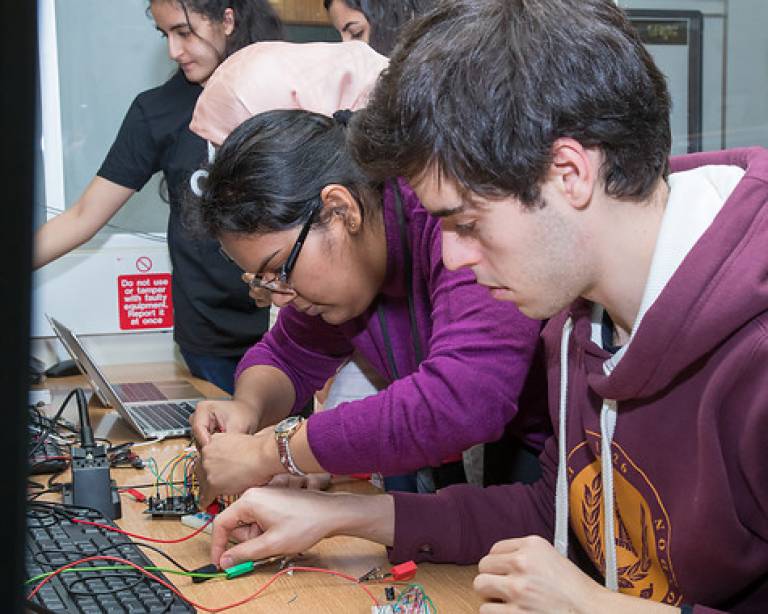Integrated Engineering Programme rated world leading in new MIT report
24 April 2018
Social context of engineering has always been at the heart of the programme, which has been a trailblazer for the ideas of the Connected Curriculum

UCL Engineering’s Integrated Engineering Programme, or IEP, has been cited as one of the top three ‘emerging leaders’ globally in an MIT-commissioned report on current and future engineering education.
The IEP featured as one of four case studies in the report, The global state of the art in engineering education, alongside SUTD in Singapore, CSU Engineering in Australia, and TU Delft in the Netherlands.
One of only four institutions in the report to be cited as both a current and emerging leader, UCL Engineering is described as offering a “world-class model” for other engineering education providers.
Developed out of a recognition that employers were demanding teamwork, communication and technical skills alongside practical and interdisciplinary experience, the IEP has been a trailblazer for the ideas now embodied by the Connected Curriculum, UCL’s framework for research-based education.
The main differences to traditional engineering programmes include the opportunity for students to:
- work with each other across disciplines
- focus on ‘soft skills’ such as communication and teamwork
- study an IEP Minor subject (ranging from Modern Foreign Languages and Environmental Engineering to Biomechanics and Programming).
Students also regularly have chance to put their theoretical knowledge and technical skills into practice via extended problem-based learning tasks, such as Scenario Weeks, often in interdisciplinary teams. An example of this is How to Change the World, an interdisciplinary, intensive two-week programme for second years that embodies the third characteristic of the Connected Curriculum, where students make connections across subjects and out into the world.
IEP Director Emanuela Tilley said that while the report anticipates a global move towards a “socially-relevant and outward-facing engineering curricula,’ the social context of engineering has always been at the heart of the IEP.
As Emanuela explains, the “responsibilities of modern, 21st century engineering are accentuated, not only in How to Change the World, but also in the IEP’s Challenges module – two ambitious five-week design projects tackled by students in their first year. At UCL Engineering, and on the IEP, we trust our students from day one, and encourage them to think and learn differently, in the hope and expectation that they will go on to change the world.”
Dr Kate Roach, IEP Challenges module lead, describes how the Connected Curriculum is “embedded within the IEP. From Term 1 of Year 1, students work with and learn from researchers. At various points during their study over the next two years, the students also work with external partners. By the time How to Change the World takes place at the end of their second year, our students are ready to embrace both external and internal knowledge, alongside professional practice, combining this expertise and coming up with innovative solutions to real-world problems.”
 Close
Close

